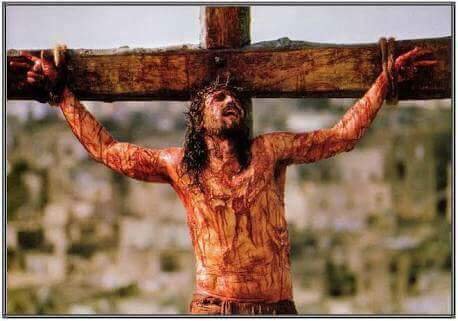MEANING OF EASTER
https://www.allaboutjesuschrist.org
The meaning of Easter is Jesus Christ's victory over death. His resurrection symbolizes the eternal life that is granted to all who believe in Him. The meaning of Easter also symbolizes the complete verification of all that Jesus preached and taught during His three-year ministry. If He had not risen from the dead, if He had merely died and not been resurrected, He would have been considered just another teacher or Rabbi. However, His resurrection changed all that and gave final and irrefutable proof that He was really the Son of God and that He had conquered death once and for all.
BISHOP’S EASTER MESSAGE, 2018
At the very heart of our Christian lives, at the very heart of the life of the Church,
is what we call ‘the Paschal Mystery’, The word ‘paschal’ comes from the Greek word
pascha, referring to the Jewish Passover which celebrated God’s deliverance of his
chosen people from slavery in Egypt and their exodus journey to the Promised Land. 
Passover was therefore a feast of liberation by God, and a recalling of God’s faithfulness
to his promises to his people. The Christian Passover which we celebrate every Holy
Week and Easter is a celebration of an even greater liberation and faithfulness. This is
not just a celebration of deliverance from slavery in Egypt, but of deliverance from the
enslaving power of sin and death. It is a victory won by the God. We move to Gethsemane - the ‘place of the pressing out of the olives’ (for that is what the
name Gethsemane means), where the Messiah, the Christ, the Anointed One, is ‘pressed
out in agony in the costliness of love and sacrifice. Judas, one of the close circle of the
disciples, gives a kiss not of friendship but of betrayal; the disciples flee; and the Lord is
handed over, bound, led to trials, savagely scourged, mocked, condemned, and in the end
led out to the appalling torture of crucifixion. Nailed to the rough wood of the cross in
excruciating pain, hands spread wide in what is the human embrace of love, Jesus hangs
a scarecrow figure, beneath a mocking inscription, ‘Jesus of Nazareth, the King of the
Jews’, a crown of sharp and spiky thorns rammed hard down on his bleeding brows.
There is darkness over the land, over the whole world, as the Light of the world is blotted
out. And from the heart of that darkness comes a cry of dereliction - ‘My God, my God,
why have you forsaken me?’ And then with a great cry Jesus dies. The centurion at the
foot of the cross utters words of amazing faith - ‘Truly this was the Son of God!’
He is dead. Wrapped in a shroud, laid in a tomb. Holy Saturday, Easter Eve, is a
day of desolation, a day on which the living God embraces the annihilation and
nothingness of our human dying.
But if that was the end, the full stop, so to speak, of the story, there would be no
story for Christians to remember, to enter into, to celebrate. It would simply be one more story among many of another martyrdom, another terrible example of torture and the
triumph of evil and injustice. There would be no church, no Christianity, and Jesus
would be but another deluded prophet broken on the crushing wheel of human sin.
Yet this is not the end. The horizon is not the death of Jesus, but new life, new
creation, a life born out of death. All four Gospels end with accounts of that new life - a
tomb found empty, a stone rolled away, frightened women who had cone to perform the
last rites for the dead and found themselves face to face with a new, overwhelming and
unbelievable mystery. Mark, the earliest of our Gospels, probably ended with the women
fleeing from the tomb, for fear and astonishment had come upon them; and they said
nothing to anyone, for they were afraid - they were overcome with awe. That awe and
wonder is at the heart of Easter. This event blows open human history, blows open
human life, to the life of a new order. Jesus, the Risen One, appears the same, yet
different, transformed, transfigured, his physical being taken up into this new order. His
disciples and Mary Magdalene recognise him - and yet not immediately - as the two
disciples on the road to Emmaus. St Paul, trying to explain to the Corinthian Christians
what this means, uses the analogy of the seed sown in the ground and the plant that
springs up from it - the same but different. This is Paul says, a ‘spiritual body’, by which
he means a body ‘animated by the Holy Spirit’. For this is the life of God’s new creation.
It is because this is the case that we can sing at Easter, Jesus lives! Henceforth is death,
but the gate of life immortal! It is because of this that we can speak triumphantly in the
Creed that we look for (literally wait with longing expectation for) the resurrection of the
dead and the life of the world to come.
Congratulations @successnow! You received a personal award!
Click here to view your Board
Do not miss the last post from @steemitboard:
Vote for @Steemitboard as a witness and get one more award and increased upvotes!
Congratulations @successnow! You received a personal award!
You can view your badges on your Steem Board and compare to others on the Steem Ranking
Vote for @Steemitboard as a witness to get one more award and increased upvotes!